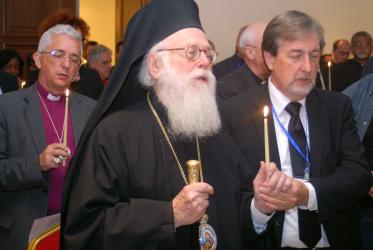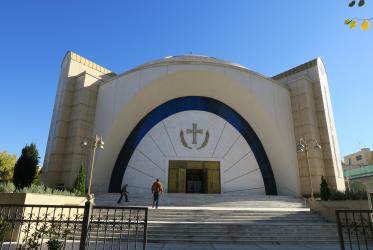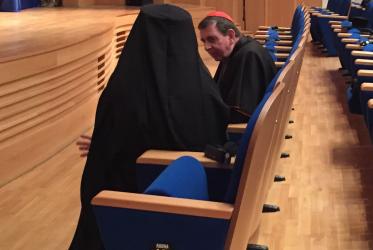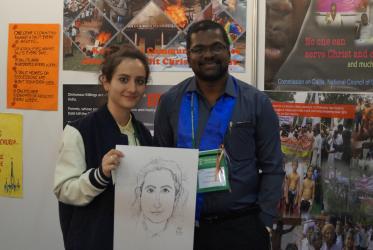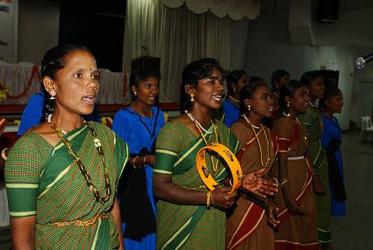Displaying 1 - 20 of 20
17 February 2020
WCC pays tribute to ecumenist pioneer
08 May 2019
#WCC70: Nathan Söderblom, ecumenical pioneer
29 August 2018
Broken glass of hope grown out of rubble
16 July 2018
Trying to do good for the world
18 December 2017
Rebuilding a smashed church in Albania
23 December 2015
Orthodox church in Albania resurrected
23 December 2015
In Albania, churches’ share of health care has grown in new era
23 December 2015
Global Christian leaders concerned for persecuted Christians
09 November 2015
Cardinal Kurt Koch tells WCC News: We have to deepen our solidarity
05 November 2015
Walking to Emmaus in the Holy Land, and Sweden
12 May 2015
“No one can serve Christ and caste!”
07 November 2013
Churches celebrate Week of Prayer for Christian Unity
23 January 2013







